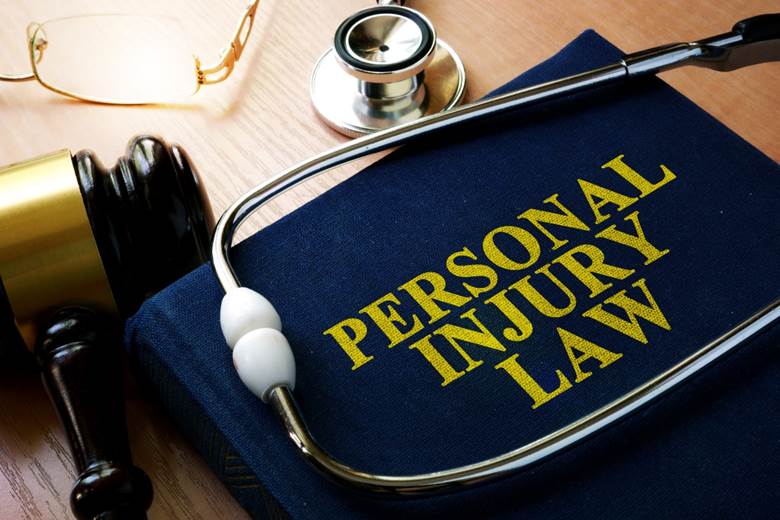
We all know that accidents happen and sometimes our mistakes cause others trouble. When it happens to you, what can you do? Well, one thing you can do is hire a personal injury lawyer.
If you’ve been injured due to someone else’s mistakes, you should talk to a personal injury attorney. These lawyers specialize in helping those injured due to someone else’s mistakes, but what exactly is personal injury law?
Here’s a guide on personal injury law and everything you need to know before hiring a personal injury attorney.
Definition of Personal Injury Law
Personal injury law, also known as tort law, allows individuals who have suffered harm to seek legal remedies from the responsible party. The purpose of this law is to provide compensation to victims for their injuries, including the following:
- Physical injuries
- Emotional injuries
- Financial losses
Types of Personal Injury Cases
Personal injury law covers a wide range of cases where individuals have suffered harm or injury due to the negligence or intentional actions of others. Here are some common types of personal injury cases:
Car Accidents
Car accidents are one of the most common causes of personal injury cases. Negligent driving, such as speeding, distracted driving, or drunk driving, can lead to severe injuries and even fatalities.
Slip and Fall Accidents
Slip and fall cases occur when a person is injured on someone else’s property due to hazardous conditions like the following:
- Wet floors
- Uneven surfaces
- Inadequate lighting
Property owners have a duty to maintain a safe environment for visitors.
Medical Malpractice
Cases of medical malpractice arise when healthcare professionals fail to provide an acceptable standard of care, resulting in injury or harm to the patient. This can include:
- Misdiagnosis
- Medication mistakes
- Surgical errors
- Birth injuries
Product Liability
Product liability cases involve injuries caused by defective products. Manufacturers, distributors, or sellers can be held accountable for the following:
- Defective design
- Manufacturing defects
- Inadequate warnings
Workplace Accidents
Workplace injuries can occur in various industries. Employees who suffer injuries due to unsafe working conditions, lack of proper training, or employer negligence may be entitled to compensation.
When it comes to occupational injuries like oil rig injuries, for example, the law grants oil rig workers the right to file a personal injury claim against any third party such as an employer, subcontractor, or product manufacturer who is found to have acted negligently or recklessly in a manner that directly resulted in their injury.
Oil rig injuries may require substantial medical care and the inordinate cost associated with it may place considerable financial burden on a family. Thus, it is crucial for the victims of such injuries to seek an oil rig injury attorney to avail the protection offered through personal injury law.
There are other types of injury lawyers that cover other industry types of injuries. However, in general, they are classified as personal injury attorneys.
Dog Bites
Dog owners are responsible for controlling their pets and preventing them from causing harm. If a person is bitten or attacked by a dog, the owner can be held liable for the injuries inflicted.
Assault and Battery
Cases involving intentional acts of violence, such as assault and battery, fall under personal injury law. Victims can pursue legal action to seek compensation for their injuries and emotional distress.
Elements of a Personal Injury Claim
To establish a personal injury claim and seek compensation for your injuries, certain elements must be present. These elements help demonstrate that the responsible party was negligent and that their negligence caused your injuries. Here are the key elements of a personal injury claim:
Duty of Care
The responsible party must have owed you a duty of care. This means they had a legal obligation to act reasonably and prudently in order to prevent harm to others. For example, drivers have a duty to follow traffic laws, and property owners have a duty to maintain safe premises.
Breach of Duty
You must demonstrate that the responsible party breached their duty of care. This means they failed to uphold the standard of care expected in the given situation. It could be a failure to follow traffic rules, not addressing a hazardous condition, providing inadequate medical treatment, or any other act or omission that falls short of what a reasonable person would do.
Causation
You need to establish a causal connection between the breach of duty and your injuries. In other words, you must demonstrate that the responsible party’s actions or negligence directly caused or significantly contributed to your injuries. It requires showing that your injuries would not have occurred in the absence of the breach of duty.
Damages
You must have suffered actual damages as a result of the incident. These damages can be tangible and intangible losses. Tangible damages include:
- Medical expenses
- Property damage
- Lost wages
- Rehabilitation costs
Intangible damages refer to pain and suffering, emotional distress, loss of enjoyment of life, or loss of consortium (deprivation of companionship or marital benefits).
Statute of Limitations
The statute of limitations is a legal time limit that sets the maximum period within which a legal action can be initiated. In the context of personal injury cases, it refers to the timeframe within which a person must file a lawsuit seeking compensation for their injuries. Here are some key points:
Time Limit
Each jurisdiction and type of legal claim has its own statute of limitations, specifying how long a person has to file a lawsuit. The time limit typically begins from the date of the injury or from the date the injury was discovered or reasonably should have been discovered.
Varying Timeframes
The length of the statute of limitations can differ depending on the jurisdiction and the type of case. It can range from one to several years.
For example, in some states, the statute of limitations for personal injury claims is two years, while in others, it may be three or more. It is important to consult the laws of the specific jurisdiction to determine the applicable time limit.
Exceptions and Variations
Certain circumstances may alter the standard statute of limitations. These exceptions can include the discovery rule, which allows the statute to begin when the injury is discovered or should have been discovered, particularly in cases involving latent injuries or medical malpractice.
Additionally, the statute of limitations may be tolled or extended in cases involving minors, mental incapacity, or the absence of the defendant from the jurisdiction.
Government Entities
Claims against government entities may have shorter timeframes or specific notice requirements that need to be followed. It is crucial to understand the particular rules and limitations when bringing a claim against a government entity.
Importance of Timeliness
Failing to file a lawsuit within the applicable statute of limitations can result in the claim being dismissed by the court. Once the statute of limitations has expired, the right to seek legal action is generally lost, except in rare circumstances.
Compensation
Compensation is an important aspect of a personal injury claim and aims to provide financial relief to the injured party for the losses they have suffered due to someone else’s negligence or wrongdoing. The compensation awarded in a personal injury case is meant to restore the victim to the extent possible and help them move forward with their life. Here are the types of compensation typically sought in a personal injury claim:
Medical Expenses
Personal injury victims are often entitled to compensation for their medical expenses, including:
- Hospital bills
- Surgeries
- Medication,
- Rehabilitation
- Ongoing medical care
This compensation aims to cover the costs of past, present, and future medical treatments related to the injury.
Lost Wages
If the injury causes the victim to miss work or reduces their earning capacity, they may be eligible for compensation for lost wages. This includes not only the income lost during the recovery period but also any future loss of earning potential.
Pain and Suffering
Compensation for pain and suffering is awarded to victims to account for the physical pain, emotional distress, and mental anguish resulting from the injury. This type of compensation is subjective and takes into consideration the severity of the injury and its impact on the victim’s quality of life.
Property Damage
In some personal injury cases, such as car accidents, the victim’s property may be damaged. Compensation can be awarded to cover the costs of repairing or replacing the damaged property.
Loss of Consortium
If the injury significantly affects the victim’s relationship with their spouse, they may be entitled to compensation for loss of consortium. This compensation is meant to address the loss of companionship, intimacy, and support experienced by the victim and their spouse.
Punitive Damages
In cases where the defendant’s actions were particularly egregious or malicious, punitive damages may be awarded. The purpose of punitive damages is to punish the defendant and deter similar behavior in the future.
Settlement vs. Trial
Many personal injury cases are resolved through settlements, where the parties reach an agreement outside of court. Settlements offer a quicker resolution and can provide compensation without the uncertainty of a trial. However, if a fair settlement cannot be reached, the case may proceed to trial, where a judge or jury determines the outcome.
Personal Injury Law
Personal injury law can be complex and difficult to navigate. Having the resources to help you understand your rights and what you can do to seek justice is essential.
Knowing the basics of personal injury law can save you time, money, and potentially emotional pain. Reach out to an experienced personal injury attorney to ensure you are taken care of.
For more helpful guides, check out the rest of our website.







